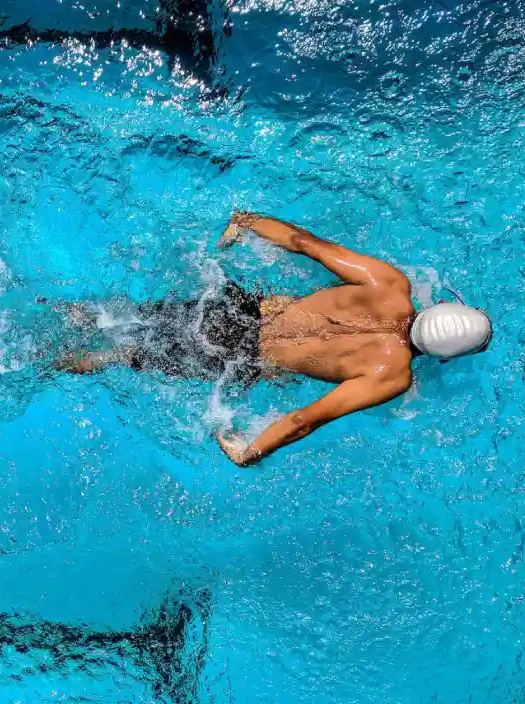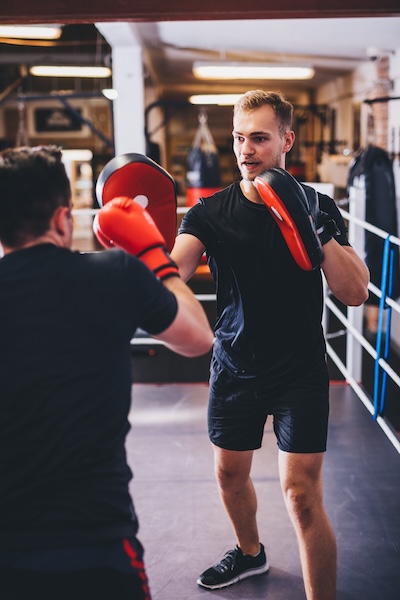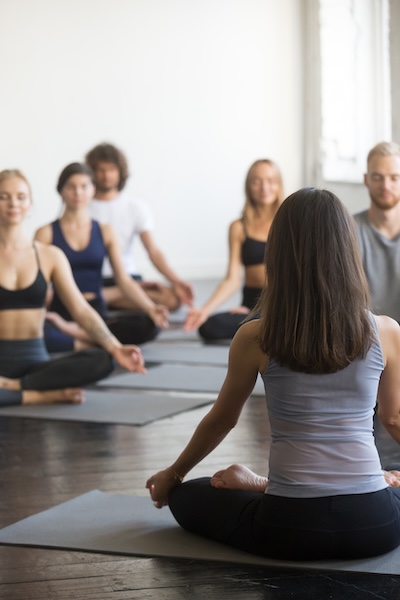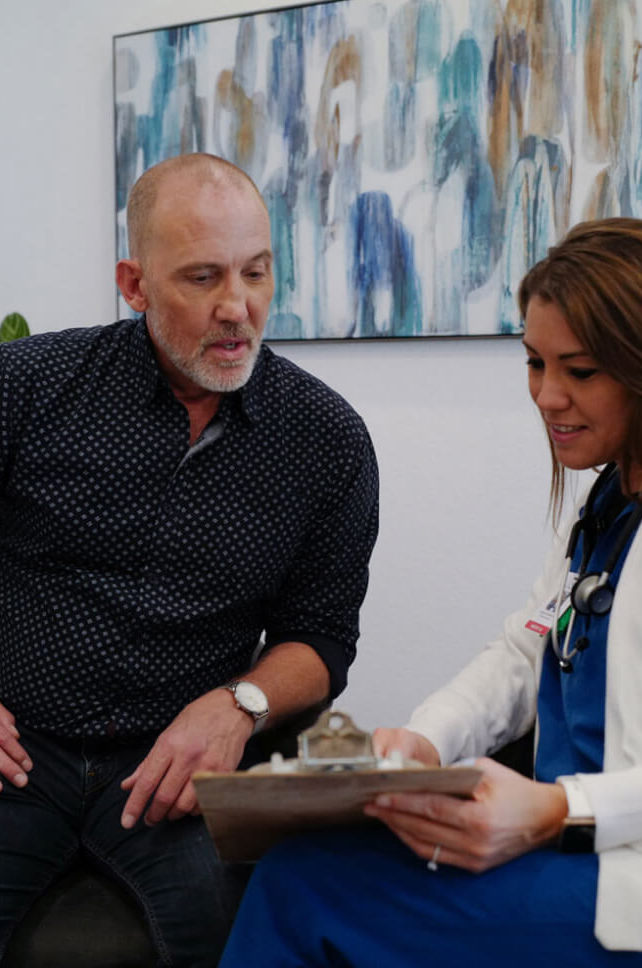Body Movement Therapy
Physical activity and body movement therapy are an important part of the addiction recovery process. Exercise can reduce stress and tension, providing a healthy outlet for difficult emotions. Studies have found that those who participate in regular aerobic activity are less likely to abuse substances. [1]
Infinite Recovery provides fitness equipment, training and exercise programs for clients at our inpatient rehab facility, including boxing therapy. Our focus on physical fitness and health is part of our holistic approach to addiction recovery. This is coupled with talk therapy and other services for a comprehensive healing experience.

What is included in body movement therapy?
Our on-site certified boxing trainers and certified personal trainers can provide advice and support while assisting in the creation of a workout plan for clients in our residential treatment program. Clients are also welcome to use the fitness area during open hours and train with each other during their free time.
Our fitness programming and amenities help clients develop a healthy outlet for stress, work toward measurable goals, and restore their physical strength and stamina after substance abuse.
Are you covered for treatment? Find out now.
About Our Fitness Program

Who is it for?
Physical activity and body movement therapy are an important part of the addiction recovery process. Not only can exercise reduce stress and tension, but studies have found that those who participate in regular aerobic activity are less likely to abuse substances. [1]
At Infinite Recovery, we don’t just help individuals get sober; we help them heal on a body, mind, and soul level, and create lives that are worth staying sober for.
How Movement Therapies Treat Substance Use Disorders
Movement therapy and exercise have been proven to support the addiction recovery process and be an important supplement to more traditional forms of therapy. Research has found many reasons why exercise—and aerobic exercise in particular—can reduce substance use and prevent relapse. [1]
Improved Mood
Exercise can serve as a non-drug method for increasing the level of neurotransmitters like dopamine and serotonin in the body [4]. These contribute to an elevated mood, more mental clarity, and other positive side effects. This is where the term “runner’s high” comes from.
Aerobic exercise in particular seems to present positive benefits for physical, emotional and psychological health. When a person with a substance use disorder has a method for naturally boosting their mood and sense of well-being, they may be less likely to turn to drugs or alcohol to alter their state. Exercise can also be a way to process difficult emotional experiences that affect mood.
Better Mental Health
Research has also shown that exercise has tremendous benefits for mental health. It can decrease symptoms of anxiety and depression while improving self-esteem and cognitive function. [5]
Many individuals with substance use disorders have an underlying mental health condition or mental illness. This condition may be the cause of their addictive behavior, or it may be exacerbated by substance use. In either case, physical activity can help decrease and resolve these symptoms, making a person less likely to abuse substances or relapse.
Structure & Consistency
Routine and consistency are important for those who are newly sober. For someone whose life used to revolve around using substances, new daily life habits, and healthy patterns need to be developed to take the place of the old ones. Otherwise, it will be all too easy to slip back into routines or social situations that trigger substance use.
Developing a fitness routine or engaging in movement therapy is one way those in recovery create stability in their newfound sober lives. Plus, the more a person works out, the better you feel. It’s a win-win cycle that makes it easier to stick to exercise as a healthy habit.
Pain Relief
Movement therapies can be beneficial in relieving many types of pain and tension. This could include chronic low back pain, low hamstring flexibility, tight hips, chronic headaches, weak immune system, and more.
Physical well-being and mental health are closely related. When a person is suffering emotional pain or is under a lot of stress, it can manifest in their bodies and vice versa.
Exercise and movement therapies can help improve a broad range of physical health conditions. They can help reduce inflammation and pain sensitivity, improve sleep, and build muscle strength. [6] This contributes to psychological healing, reduces symptoms of neurological disorders, and supports addiction recovery.
Other Mental Health Services We Offer
Boxing therapy and movement therapy are just two of the many therapeutic programs we offer at Infinite Recovery. Everybody’s different and has different needs and goals. That’s why we provide a wide range of services, from traditional to alternative, to meet each person where they are on their recovery journey.
Some of the other therapies we offer through our inpatient and outpatient programs include:
- ART Therapy (Accelerated Resolution Therapy)
- Boxing and Body Movement Therapy
- Cognitive Behavioral Therapy
- Family Therapy
- Family Dynamics Therapy
- Group Therapy
- Individual Therapy
- Motivational Interviewing
- Relapse Prevention Therapy
- Spirituality Therapy

Get Help For Yourself or a Loved One Today
If you or a loved one are seeking an addiction treatment program that includes movement therapy and a focus on physical fitness, reach out to Infinite Recovery today.
We offer a holistic approach to recovery, with trauma-informed care and 12-Step principles at the core of our philosophy. No matter where you are on your journey, we have a program that’s right for you. This includes medical detox, partial hospitalization, outpatient services, and inpatient rehab.
Our programs are covered in-network by most major insurance companies.
For more information or to verify your insurance, speak with a member of our team today.






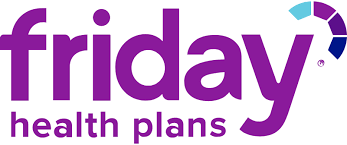





















We remove the financial barriers to high quality drug rehab treatment.
Reach out to our admissions team today to verify your insurance.
Speak to Admissions Specialist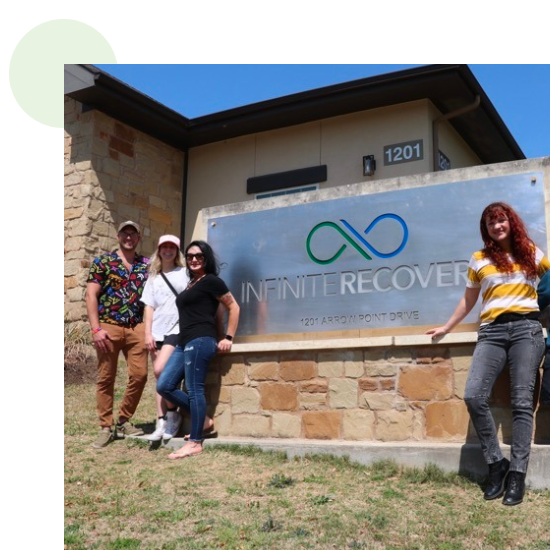
The National Institute on Drug Abuse (NIDA) states that long-term treatment (at least 3 months) significantly improves the chances of long-term sobriety
Reach out and transform your life today
Homepage Reach out Form
"*" indicates required fields
Our Locations
Infinite Recovery - Austin Detox
1201, Arrow Point Dr, Cedar Park, TX 78613
Phone
(844) 206-9063
Infinite Recovery - Austin
1524 S I-35 Frontage Rd Unit 201, Austin, TX 78704, United States
Phone
(844) 206-9063
Infinite Recovery Legacy Ranch Buda Drug & Alcohol Rehab
13207 Wright Rd, Buda, TX 78610, United States
Phone
(844) 206-9063
Infinite Recovery Treatment Center - San Antonio Community Outreach
3463 Magic Dr Suite T14, San Antonio, TX 78229, United States
Phone
(844) 206-9063
Infinite Recovery Treatment Center - Houston Community Outreach
1000 Main St Suite 2300, Houston, TX 77002, United States
Phone
(844) 206-9063
